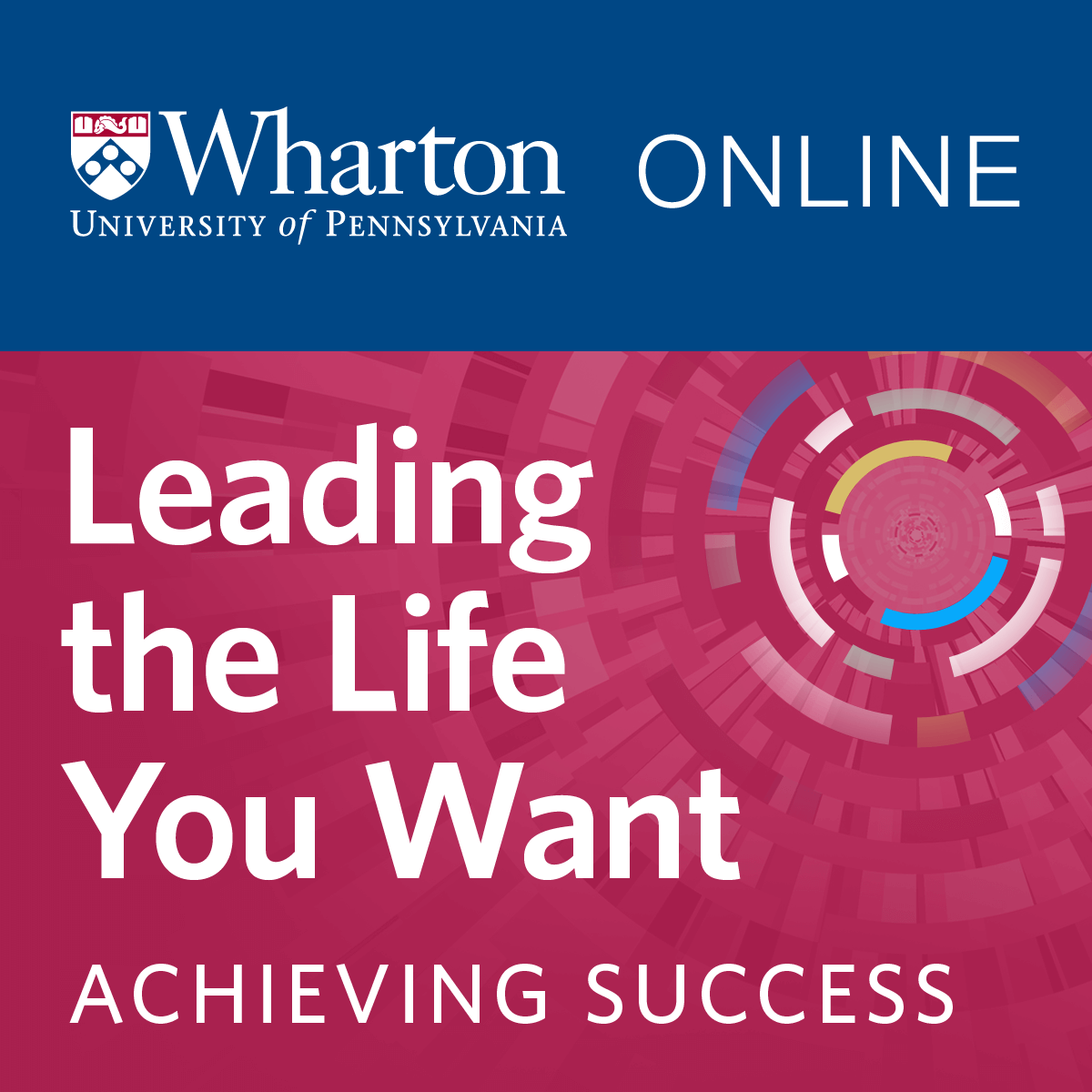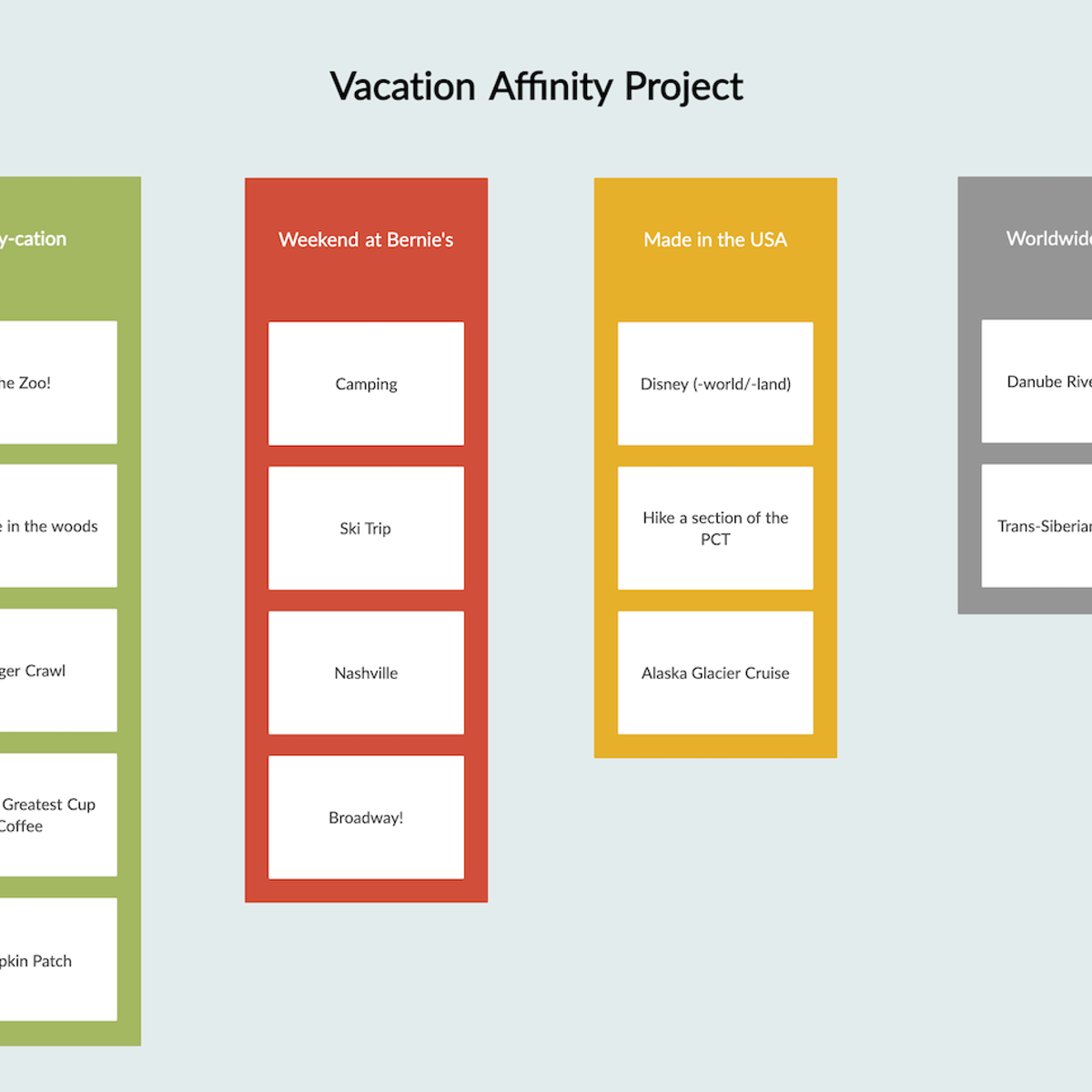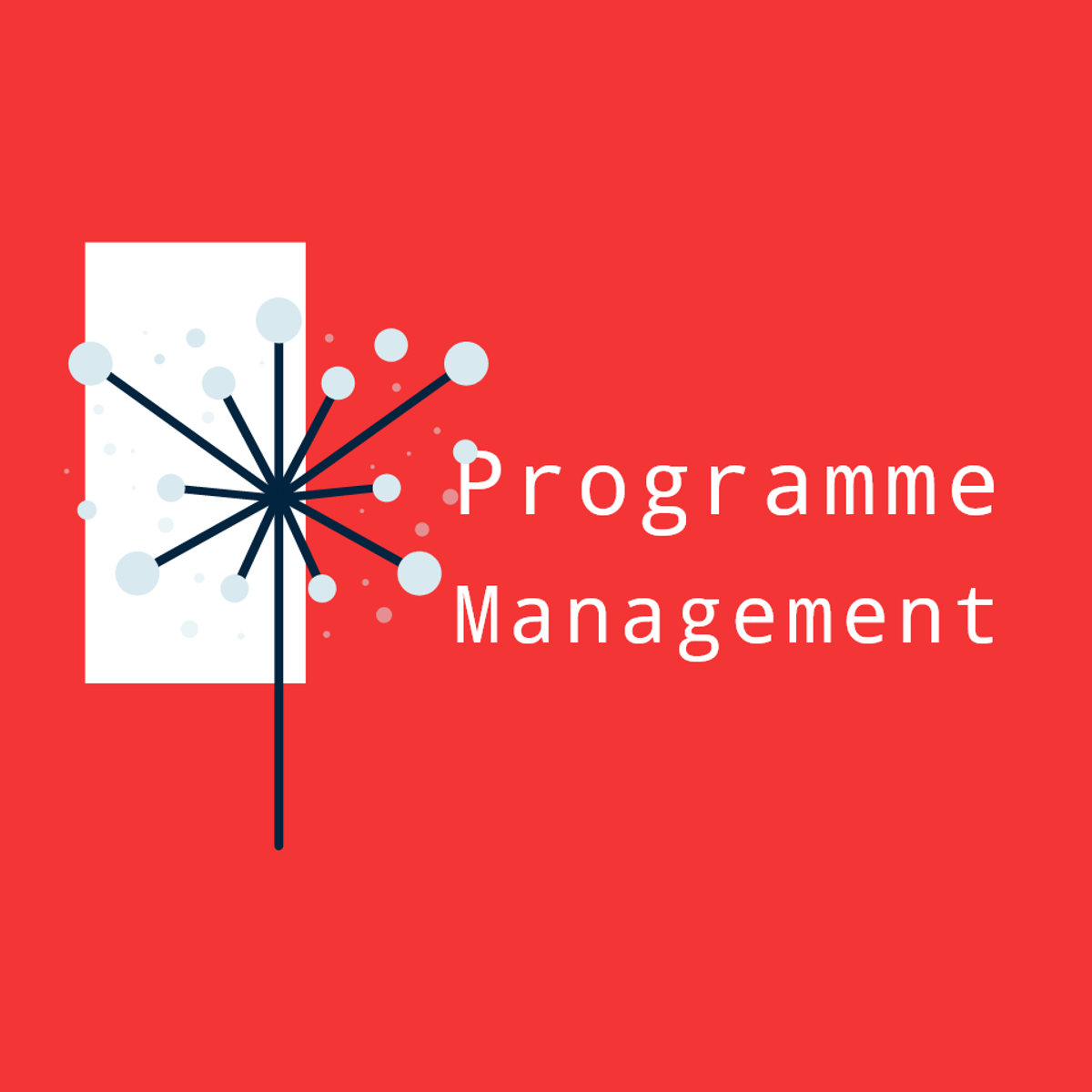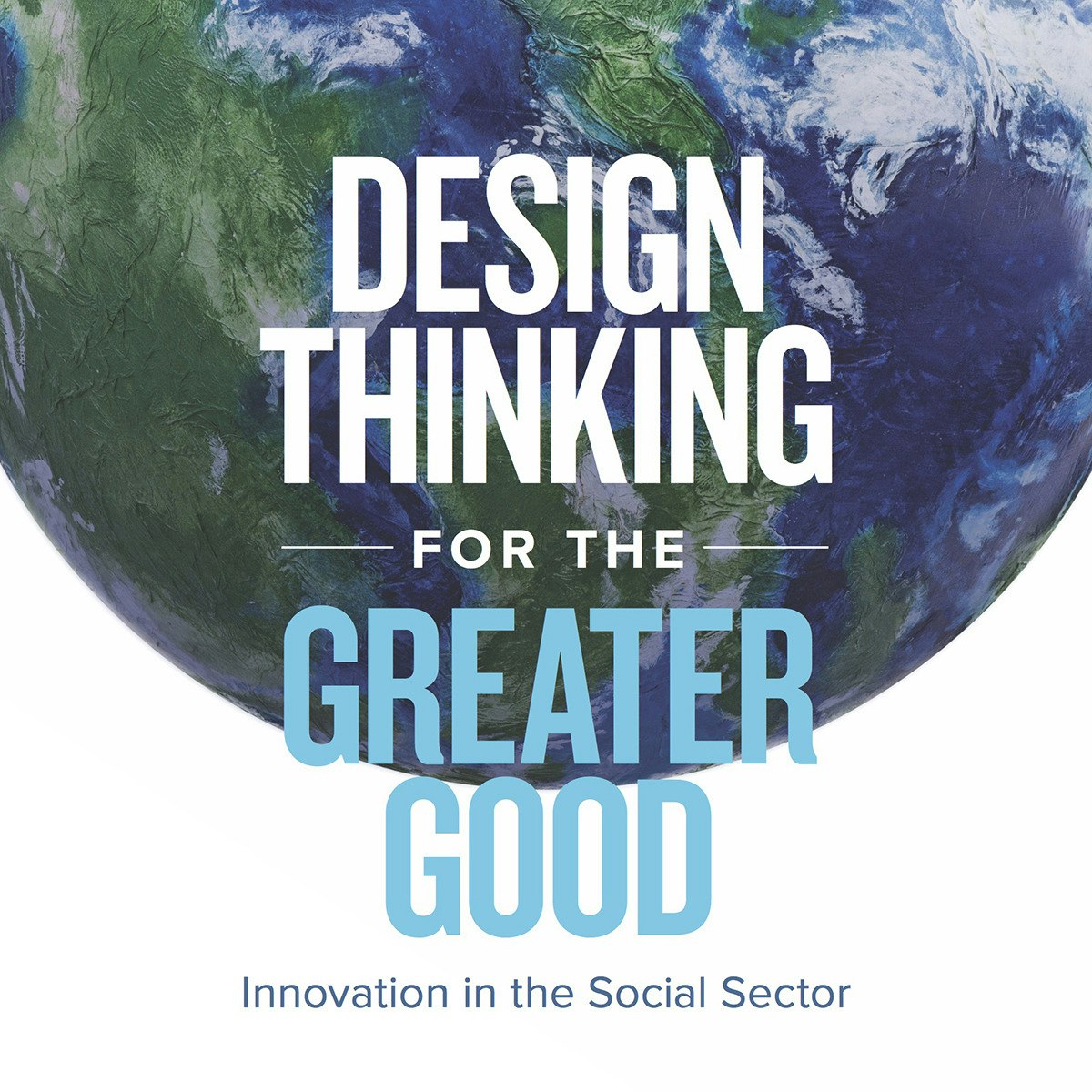Back to Courses









Leadership And Management Courses - Page 52
Showing results 511-520 of 600

Leading the Life You Want
Pursue a meaningful life and improve your performance as a leader. Taught by acclaimed Wharton professor, best-selling author, and former Ford Motor Company executive and head of its Leadership Development Center, Stew Friedman, Leading the Life You Want provides you with the skills you need to lead in all four domains of your life: at work, at home, in the community, and in your private self (mind, body, and spirit). You'll explore the core principles of leadership and learn the skills you need to bring them to life. You learn how to find a greater sense of purpose, see how to convey values with stories, learn how to manage attention, feel less stressed, lead through serving others, and more. You'll see these skills illustrated in the inspiring yet imperfect lives of six remarkable leaders: Tom Tierney (former CEO of Bain), Sheryl Sandberg (COO of Facebook), Michelle Obama (former First Lady), Eric Greitens (Republican Governor of Missouri), Julie Foudy (world champion soccer star and three-time Olympic medalist), and Bruce Springsteen (world-famous rock musician). You'll have the opportunity to assess your own leadership skills, and learn simple, proven exercises to practice them. By the end of this course, you'll have the tools you need to develop your skills so you can grow as a leader in all areas of your life and create greater harmony among them.

Create an Affinity Diagram Using Creately
By the end of this project you will create an affinity diagram using Creately.com. Learning to collect and organize ideas and information increases productivity and fosters positive teamwork. Learners will engage in the Affinity process to develop an understanding of how to spark, gather, consolidate, sort and present ideas and information.

Principles of Management
Team leads, managers, and entrepreneurs must juggle team citizenship and leadership, ethics, strategy, and projects with their work in their area of expertise.
While an individual contributor’s success may depend on their own direct input -- the sweat of their own brow – managers’ success depends on their ability to enlist the active involvement of others: direct reports, other managers, other team members, other department employees, and those above them on the organizational chart -- sometimes even their suppliers or customers!
How do you form, launch, and manage a team such that it has the highest chance of success? How can you ensure your team’s work aligns with the organization’s strategy? What basic project management tools can you utilize right away, without purchasing special software, that will help your team meet its objectives on time, on budget, and to spec? Your success at work will depend on the level of trust your colleagues, those who report to you, and those to whom you report feel toward you – how can you build and maintain a high degree of trust?
This course will help you succeed in your career.

Program Quality Planning with ClickUp
By the end of this guided project, you will be fluent in creating Program Quality Management artefacts for the Planning Phase for diverse programs. You will utilise a logical diagramming plan in an agile environment to develop the solution. This will enable you to identify and classify the required components for quality planning. Furthermore, it will help develop a structural model for learning about the field of Program Management.
If you are interested in building up the knowledge leading to this guided project, the following is the link to:
[ Developing Programme Management Blueprint with ClickUp]
https://www.coursera.org/projects/program-blueprint
[Advanced Programme Planning Phases Framework in ClickUp]
https://www.coursera.org/projects/program-advanced-planning
This Guided Project is essential for individuals wanting to learn about the field, or looking to transition into working in Program Management. This guided project is designed to engage and harness your visionary and exploratory abilities. You will use proven models in an agile environment with ClickUp to engage in a hands-on learning experience.

RStudio for Six Sigma - Monte Carlo Simulation
In this 2-hour long project-based course, you will learn how to
1. Generate Continuous, Discrete and Categorical Data (Xs) Using Statistical Distributions
2. Create A Transfer Function That Relates The Xs With The Y (Dependent Variable)
3. Perform Monte Carlo Simulation & Sensitivity Analysis Using RStudio
Note: This course works best for learners who are based in the North America region. We’re currently working on providing the same experience in other regions.

Innovating with the Business Model Canvas
Have you ever gotten really excited about reading or writing a business plan? You might have started out excited, but I’m going to bet you didn’t stay that way. Let’s be honest- business plans are boring and mostly ignored.
The beauty of the one-page Business Model Canvas is that it drives meaningful focus. It helps us organize our ideas and have better discussions by forcing specificity and bringing linkages between key business drivers to the foreground. Innovation requires one hand being very focused on a fundamental need or problem while the other hand quickly tests different solutions. For this, the Business Model Canvas is very innovation friendly: It's a lot easier to tweak the model and try things with something that's sitting on a single page
In this course, developed at the Darden School of Business at the University of Virginia and taught by top-ranked faculty, you’ll learn key tools from the worlds of design thinking and Lean Startup to approach the Canvas with thoughtfulness, focus, and above all a test-driven approach to business model innovation.

Design Thinking for the Greater Good: Innovation in the Social Sector
Do you work for a nonprofit or in the social sector? Are you struggling to solve the problems and meet the needs of the people you serve? Come learn more about how design thinking, a human-centered approach to problem solving, can help you truly understand an issue, generate ideas worth testing and iterate to find solutions that make a real difference. Through global stories from areas as diverse as government, health care, and education, we’ll show you the tools, techniques and mindset needed to use design thinking to uncover new and creative solutions in the social sector.
The development of this course was supported by the Batten Institute for Entrepreneurship and Innovation at the University of Virginia's Darden School of Business. For more about the Batten Institute, see:
http://www.darden.virginia.edu/batten-institute/
@BattenInstitute
@DesignatDarden

Unethical Decision Making in Organizations
This course 'Unethical decision making in organizations : A seminar on the dark side of the force' will teach you how strong organizational contexts push good people towards unethical decisions. You will also learn how to protect yourself and your organization against such forces lurking in the dark.
About the Course
This course teaches how narrow frames and strong contexts can push good people towards unethical decisions and how they can protect themselves and their organization against ethical blindness.
The goal of this course is to empower the participants to analyze the risks of unethical or illegal behavior that might be triggered by powerful contexts. It draws from various disciplines such as management, psychology, sociology, philosophy, and literature, in order to learn what these disciplines contribute to a better understanding of unethical behavior. The course also analyzes some of the most prominent organizational scandals of the recent decades through the lenses of these disciplines.
Whenever we hear about ethical scandals, we tend to believe that unethical or illegal behaviour in organizations is driven by character deficiencies of individual actors. Put differently, we simply assume that bad things are done by bad people. However, numerous corporate scandals have demonstrated that even people with a high level of integrity can break the rules if they are put into a strong context.
A better understanding of why and under what conditions good people make bad ethical decisions will enable us to better protect individuals as well as their respective organizations against the potentially overwhelming power of the context. It will also enable us to cure societies from problems like corruption.
At the end of the course, you are able to:
1. Explain the impact of social context on individual decision making using various theories (from Management, Sociology, Psychology, and Philosophy)
2. Apply these theories to the analysis of some of the most eminent organizational scandals of the recent decades
3. Assess risks of ethical blindness in your own organizational context
4. Design interventions to reduce such risks for yourself and your organization
Recommended Background
No background expertise is required. The course is open for interested layperson as well as experts who work on related topics, be it as researchers or practitioners (e.g., compliance managers in corporations).
Why is this course important for me?
Currently, the understanding of why good people make unethical decisions is rather limited, related research is rather fragmented, and the management of such problems in organizations is overly simplistic, legalistic, and inadequate. Understanding contexts, including the dangers of routines, the mindlessness of our daily decisions, and the healing power of mindful decision-making routines is of increasing importance. In this course, you will learn the latest knowledge and the appropriate tool box for dealing with ethical challenges that you will face throughout your life!
What do I need to follow this course?
We build bridges between various scientific disciplines and will familiarize you with those disciplines smoothly. You need no expertise, just come and share your own real-world experiences about unethical decisions. After all, we are all experts in making decisions—some more ethically, some less ethically—aren’t we?
Business Process Management in Healthcare Organizations
Have you ever needed to resolve a billing or other issue with a healthcare organization and thought that there must be a better, more efficient, and more customer-friendly way to operate such a business process? For example, have you thought that there should be an easier way to read your bill or pay your bill? Or do you work in a healthcare organization and find yourself thinking that there must be better ways for the business processes to function? If you have, this course is for you.
Course content includes an overview of healthcare organization business processes including business process management approaches as well as a discussion of healthcare organization entrepreneurship as a business process. The course provides links to external sites to connect you to the larger "real world" of healthcare organization business processes, business process management, and entrepreneurship. The links also serve as resources you can take with you after you complete the course experience. And because everyone loves a road trip/field trip, there are also "virtual field trips" to the often hidden places of interest on the web.
The course format is readings, videos, quizzes, and a project. The project requires you to synthesize course material to design patient-centered business processes for a healthcare organization the way you would have things run in the best of all worlds. The design (submitted as an electronic word processing document in memo format) is an artifact of the course which you can circulate to colleagues or use as the basis for a talk or presentation event.

Ethics of Communication
Welcome to Ethics of Communication. Geared toward working professionals in both the corporate and nonprofit sectors, Ethics of Communication covers key topics in the modern world of business. Areas of focus include an in-depth examination of the ethical dimensions of professional communication, self-examination of individual conflict styles and preferences, and crisis management scenario analysis and strategy. You will develop and enhance skills related to these concepts through lectures conducted by Notre Dame Professor, Dr. Amanda G. McKendree, written communication exercises, self-reflection, peer-graded assignments, and a variety of readings.
Popular Internships and Jobs by Categories
Browse
© 2024 BoostGrad | All rights reserved


